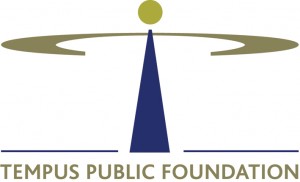Do you follow the Eurovision Song Contest every year? Can you predict who the winner will be this year? This article sums up what leads to success – read on before you place your bet!
For a quick training in reading skills, try to guess the meaning of the orange words as you read the text. (B1/B2 and above)
From office sweepstakes to online bookmakers, across Europe millions of pounds are bet on the Eurovision song contest every year. But is it in any way possible to predict the winner? To the outside eye, a roll-call of recent victors could scarcely look more random: a heavy metal monster band, a bearded lady, a pair of middle-aged Danish brothers, a teenage fiddler.
Taking a closer look at the songwriting trends in recent years, however, shows that it may not be such a crapshoot after all.
Owing to a change of rules in 1999, Eurovision entrants are now allowed to write in any language that they choose. A few countries stubbornly persist in sticking their mother tongue out even though there is no absolutely no discernible benefit in doing so (Olá, Portugal!) but most end up trying their hands at English in order to be at least vaguely understood by the maximum possible number of countries.
It’s worth the extra effort. Only one winning song has been sung in a language other than English since those language rules were relaxed – and that was Serbia’s 2007 entry, Molitva, by KD Lang-a-like, Marija Šerifovi.
D minor was famously hailed as “the saddest of all keys” by Spinal Tap’s Nigel Tufnel but it’s the cause of nothing but celebration at Eurovision. Despite having a reputation as being a happy, campy clap-a-long, since the turn of the century, audiences and juries have shown a consistent preference for songs in minor keys. D minor in particular has provided four of the last seven winners: Molitva (2007), Fairytale (2009), Satellite (2010) and Rise Like a Phoenix (2014).
Mentioning your heart is a really bad idea (nine losers have done so); mentioning your eyes is a pretty good one (as four winners found out); but, as Lena proved with Satellite in 2010, mentioning your underwear is a really good one.
Also of note – in keeping with the our preference for sad songs – lyrics which reference bad weather (thunder, lightning, raindrops, etc) have been more successful than lyrics which reference blue skies and sunshine.
Read the full story in The Guardian
ANSWERS:
a roll call – a head count, a list of
a crapshoot – a shot in the dark, risky business
entrants – participants, contestants, those who enter the contest
stubbornly – firmly, obstinately (doing something without wanting to change your mind)
discernible – obvious, noticeable, apparent
hailed – celebrated, cheeered
Photograph: bbc.co.uk/Eurovision
If you like our lesson, share it with friends and colleagues by using the button below. Thanks!




